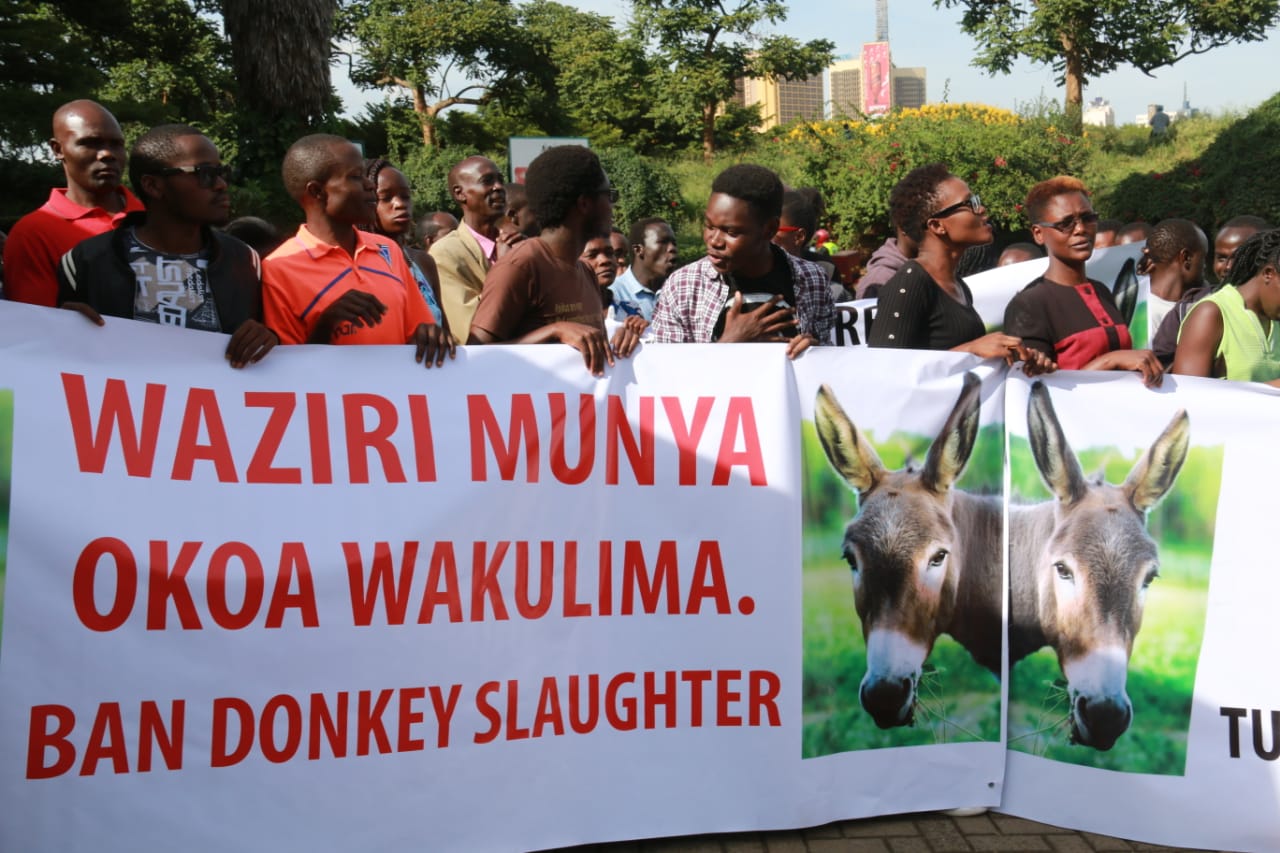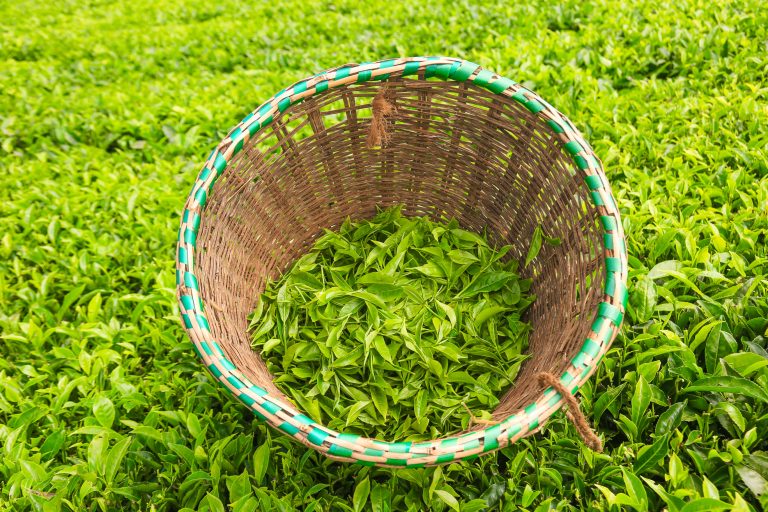Donkey farmers and owners in Kenya can finally celebrate as the government has banned the slaughter and sale of donkey meat and products in the country. The Cabinet Secretary in the Ministry of Agriculture, Livestock, Fisheries and Cooperatives Peter Munya has given the operators of donkey slaughter houses in Kenya a month to stop slaughtering donkeys. The CS was addressing representatives of the donkey owning communities, drawn from across the country who had visited his office.
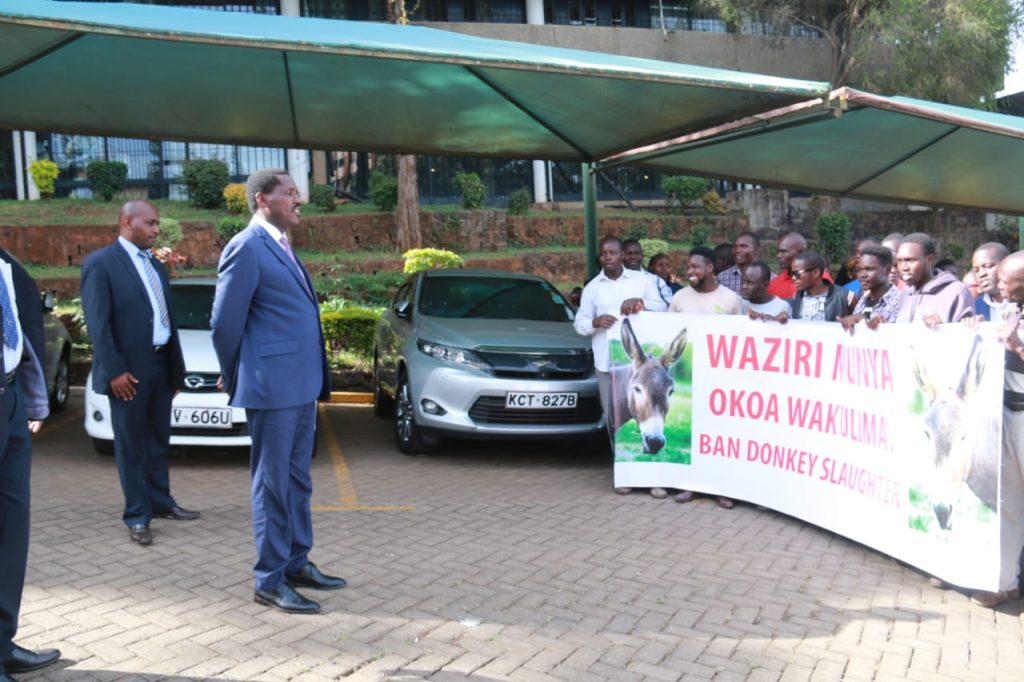
The farmers sought for the ban on the slaughtering and export of donkey skin and associated products from Kenya. The CS says the slaughter of donkeys and trade in related donkey products has promoted vices like stealing of donkeys, wanton and unmitigated slaughter of donkeys, which has led to drastic reduction in the donkey population. This he says has, consequently, impacted negatively on the economic welfare and the livelihoods of the families of those who rely on donkeys for transport and as a means of facilitating trade. “If this trend continues the donkeys will be decimated and the economy will be affected in a huge way. We have therefore decided to stop the slaughter and the trade in donkey associated products,” says Munya.
Donkey meat and milk has been consumed over the years by some communities in Kenya, with the donkey primarily slaughtered in the bush. This led to gazettement of the donkey (asses) alongside quails, ostriches, rabbits, horses, mules and hinnies as food animals in the year 1999, in order to promote food safety (GoK,1999). Consequently, under the Meat Control (export slaughterhouse) Regulations 1973 (GoK, 2012), four export slaughterhouses were licensed and established. These are Goldox Kenya Ltd in Mogotio, Baringo County, Star Brilliant Ltd Naivasha, Nakuru County, Silzha Ltd Lodwar, Turkana County and Fuhai Machakos Trading Co. Ltd at Kithyoko, Machakos County.
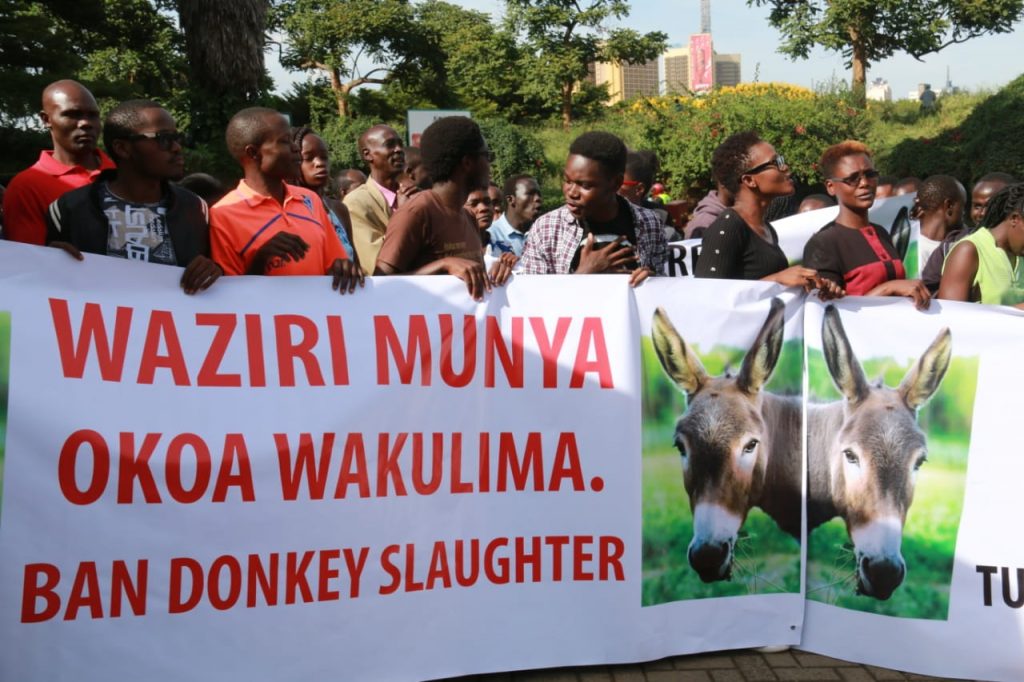
According to a report titled “The status of donkey slaughter in Kenya and its implication on community livelihoods”, operationalization of donkey slaughterhouses coincided with an increasing trend in reports on donkey theft. This was commonly reported by households in donkey keeping areas to area chiefs, the police as well as covered through media reports across the country. Most stolen donkeys were allegedly ferried out of the counties of origin alive or slaughtered in the bush, deboned and their skin and meat taken away, or skinned and the carcasses abandoned. Meat from donkeys slaughtered in the bush was suspected to end up in local butcheries while the skin suspected to be exported to foreign markets where the demand was high. The local community further alleged that the meat after deboning was taken to the export slaughterhouses. Such high demand particularly by the Chinese market as well as high prices offered for donkey skin are undoubtedly fueling global reports of poor donkey welfare, theft and a sudden increase in the purchase price of donkeys. One such case is the rise in price of the donkey from Kshs 4,000 to Kshs 13,000. Donkey theft led to protests in some parts of the country including Embu, Kirinyaga and Narok while in some instances, local communities protested against establishment of donkey slaughter facilities in their counties. The report is authored by Dr. Monicah Maichomo, Ms. Tabby Karanja, Dr. Moses Olum, Dr. Joan Magero, Prof. Timothy Okech and Mr. Njoroge Nyoike.
The number of donkeys slaughtered within the period 2016 to 2018 in the four slaughterhouses was: 87.39% (263,890) in Goldox Slaughter House, 9.58% (28,935) in Star Brilliant in Nakuru County, 1.71% (5,161) in Silzha Ltd in Turkana County and 1.31% (3,991) in Fuhai Trading Company Limited in Machakos County (Fig 2). Goldox Kenya Ltd
According to the Alliance for Donkey Welfare Organizations in Kenya (ADWOK), donkey theft and slaughter had played a big role in bringing the population down in the country at a shocking rate. ADWOK statistics show that 4,800 donkeys were reported to have been stolen between January to August in 2018. This was attributed to the rising demand of donkey meat and skin in the country then. Around 400 donkeys were reported to be disappearing every month in the country since the first donkey slaughterhouse was licensed in Kenya.
“The impact of donkeys in our economy cannot be ignored. Women are the biggest beneficiaries of the animal as they use it for transporting produce to the market, fetch firewood and water among other uses. In arid and semi-arid areas women use donkeys to collect relief food over long distances. For every donkey that is stolen, there is an increase of 35% in daily labor to women who have access to donkeys. Donkeys play a great role in poverty reduction in the country,” says Dr. Kinoti the ADWOK Chairman. He says donkeys are popular with farmers in transporting materials in the farm while others use them commercially for transport. ADWOK says that each donkey earns between Kshs. 500-1200 for the owners daily.
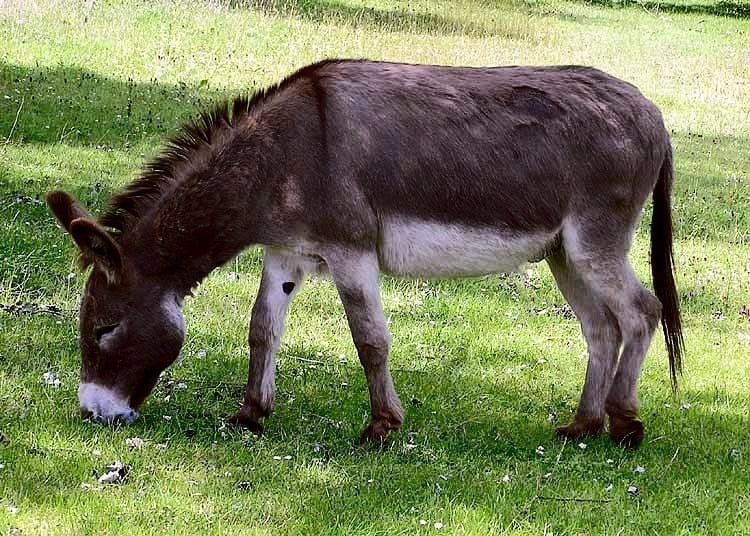
China had around 11 million donkeys at one time but but the population was 4-5 million in 2018. Apart from the meat being a delicacy there, Gelatin produced from donkey hide is a key ingredient of one of China’s favorite traditional remedies, known as ejiao. it is used to treat a range of ailments from colds to insomnia. With just under 5 million skins needed every year for ejiao production, the industry would need more than half the world’s current donkeys over the next five years to meet demand, according to a report from The Donkey Sanctuary. To meet demand, Chinese businesses need about 4.8 million donkey hides per year. Donkey populations in China have collapsed 76% since 1992, so the industry has turned to foreign suppliers, particularly in Africa, Asia and South America.


